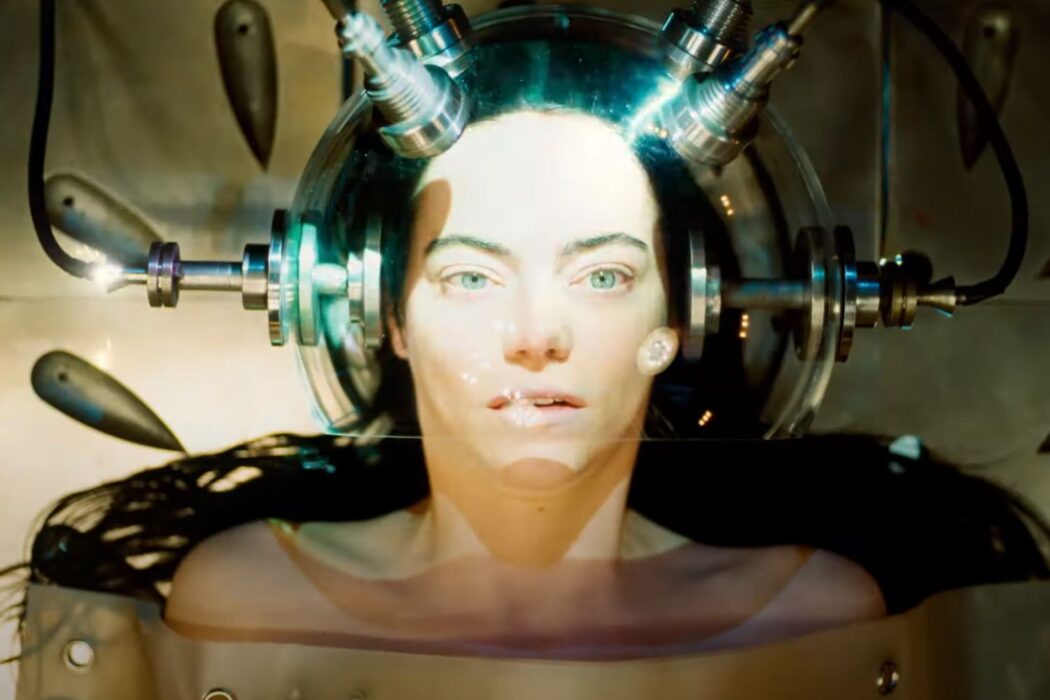Book launch, New York Public Library, September 12In order for the wheel to turn, for life to be lived, impurities are needed […] dissension, diversity, the grain of salt and mustard … (Primo Levi, The Periodic Table)
In Devil’s Contract, Ed Simon examines historical events and the present through the lens of the Faustian bargain. We have been, he ponders, and still are all caught in a Faustian pact. Despite the lessons of history, we cannot renounce the comforts provided by technology and science even though we have plenty of evidence that their unchecked exploitation by capitalism is leading to the demise of the planet and humanity itself.
Shortly after his return from Auschwitz, Primo Levi wondered how humanity, whose sensibility had been radically re-tallied by the destruction of World War II, could restore the meaning of labor and lift it from its symbolic degradation on the entry plaque of the death camp. As Levi understood it, labor is a quest for knowledge driven by the desire to make something anew, to capture the “infinitely big” and “infinitely small” worlds. Labor is one with the enthusiasm of devising the right tool and engage in conversation with the world and our peers. Throughout his life, Levi pointed to the dangerous signs that the meaning given to labor by the plaque at Auschwitz still loomed large on society. In his view, Hiroshima, Cambodia, and Vietnam were among the indications that what produced Auschwitz was still operating half a century later.
While it is of little use to imagine what Levi would have thought of the current state of society (which, since his passing, may have changed more on scale than substance), it is telling that his concerns regarding the unregulated development of science and technocracy were not limited to chemistry and its offsprings but extended to cybernetics, and computer science. Levi was fascinated by the Turing machine and by the early language simulation models like Eliza. In Natural Histories (1966) and Vice of Form (1970), he explored the ironies and intricacies of the growing intimacy between humans and machines. His central questions are about how the two interact, work, and what they “do.” The issue of who they are remains merely speculative and, at most, is entrusted to irony. Levi, after all, belonged to a generation and culture that did not consider it appropriate to indulge in grand answers.
If Levi placed the act of “making,” labor and its role in producing knowledge and ethics at the center of his analysis of society, Simon positions himself at the end of things suggesting that the world’s end may be imminent: he indicts the Anthropocene (or Faustocene as he names it) and laments the reemergence of the devil as motor of religion. “Faust,” Simon reasons, “is our operative myth because it expresses the madness of a culture collectively endeavoring to bring about the apocalypse all for the piddling convenience that a fossil fuel economy provides. Through his infernal contract, Faust is given certain abilities—he can transport himself anywhere in the world instantly, he has access to all knowledge, he can spy on people unseen—but of course the cost is his soul.”
While Levi was cautious about the limits of personal resilience, he never lost confidence in the human quest for knowledge and the possibility to rein in selfish and destructive instincts. While seeing them in front of his eyes, he resisted the temptation to embrace all-encompassing metaphorical narratives that could be soothing and dooming at the same time.
On his part, Simon’s harrowing depiction of the failures of modernity is certainly something with which many identify today. The outcry over climate disasters, armaments, nuclear power, and artificial intelligence has become nearly a literary genre of its own. Indeed all of these disasters loom close on us in ways that are often tangible on a personal level. But are they the result of Faustian pacts?
Perhaps a pause is required. Who is the subject of these Faustian moments? If, as Simon observes, “the great paradox of the Anthropocene” lies in the fact that we know that “industry and technology are killing our world but that we remain addicted [to consumption];” if planet Earth has been reduced to “something that provides mere convenience for us and unimaginable wealth for a corrupt few;” who then, has made and is renewing the Faustian pact? Who are the “us” who gain mere convenience from a technology that —if the argument is taken to its end— could be done away with? And are the “us” and the “few” the only actors in this tale? How about the millions who barely rise above the surface of the “conveniences” science and technology bring about? Those who hope for a drop of clean water, an antibiotic, or a tool that will make their labor less likely to cut their lives short? Those in the “other” neighborhood who have been working hard to share in the comforts of the technological society but are left behind? Can the hopes and the hard work of these majorities be inscribed in a Faustian pact?
Let’s imagine for a moment that a modern Faust decides to break the contract: what will the devil do? Will we find ourselves in a world without science and technology but free of those corrupt few who usurp and devastate the earth to their own exclusive advantage? Who surveil everybody and demand absolute loyalty? Those evil few who, in a society born from the enlightenment, have managed to reintroduce “Mephistopheles in the guise of a computer, a locomotive, an atom bomb”?
It only takes a phone call with one of the many exasperating AI customer services to know that, if the devil is AI, as suggested by the Roko’s basilisk anecdote recounted by Simon, it cannot possibly compete with the dullest among its predecessors. And neither can our modern Faust’s craving for knowledge. If anything in fact, we live in a world that faced with the possibility of massive knowledge, greatly favors the bliss of ignorance. But, we should at least ask, can massive knowledge be empowering and inspiring, or is it more likely a source of fear and paralysis?
Simon anchors his Faustian metaphor to the beginning of modernity when science and magic, which he summarily identifies with Francis Bacon and John Dee, commingled. Both, in his view, “believed that ours was a world of unseen forces and that the adept could manipulate those forces, giving humanity tremendous power.”
Power, in fact, seems a better candidate than knowledge as the object of a long history of unchecked human desire. While knowledge, science, and technology have certainly proved effective tools of power, they are hardly craved by the “us” and the “few” beyond the power they procure. They are in fact ignored altogether. Most users of black screens have no idea of how they function and what’s inside them, and even less do they seem to care about the nature of “truth” each scroll reveals over their surfaces.
But power is not for all. If the new Faust repents, will the unseen majorities remain without these meager but vital possibilities? Would then be righteousness the opposite of Faust’s weakness and wickedness? If he stops craving absolute knowledge, will he be content with a place among the just? Is he willing to give up his mere convenience and overlook the demise this would mean for the planet’s great majority because he desperately needs to dissociate from the responsibility to repair the evil carved in every human action?
As a chemist, Primo Levi knew that confronting the elements and their mysteries requires labor and dirty hands; error and laughter; love and humility. In the face of achievement and debacle, we can make many different choices, and those choices produce a worldview. Having worked in a factory for most of his life, he regarded labor as a key element of knowledge and ethics. Significantly he cast the wisdom gained through his own experience not in the story of a scientist but in that of a metallurgic worker.
Simon, on the other hand, prefers to avoid the sticky practicalities of labor and sees empirical science and magic as two realms — Francis Bacon’s and John Dee’s—that have in common the will to govern the universe and differ in their efficacy: one led to technological progress and the other supposedly did not. However, he concludes, they need one another because all progress requires meaning: religion and its devils are destined to be always resurrected not as a particular body of knowledge or culture but as a simple “category” of “production of meaning.”
While for Levi, the confrontation with raw matter, or any other kind of labor, be that of the metallurgic worker or the bricklayer, generates not only knowledge and skills but also wisdom and ethos, for this Faustian metaphor to work, we apparently need to postulate that only religion makes meaning while knowledge (or scientific labor) does not or does less. Thus, the “silicon messiahs” who promise to “resurrect as immortals in a future computer simulation” appear to us as the result of the marriage between science and religion rather than, let’s say, the latest frontier in the history of propaganda who need not to be devils and are, like their predecessors, far less talented than Marlowe, Mourner, Fritz Lang, or Bulgakov.
It is possible that, as tempting an explanation as may seem, the Faustian pact can not account for the struggles, needs, hopes, and errors of a complex and diverse society. And neither can it orient us in finding better pathways.
Yet, The Devil’s Contract raises a fundamental issue: not that of the marriage of science and religion, on whose modern roots generations of scholars from Frances Yates and Christopher Hill to Anthony Grafton have offered variegated insights. But isolates as central to its’s author quest, the nature of meaning as crossroads of the human messy desires.
Meaning indeed is the magic secret that continue to elude us and our machines. It exists with or without symbols and is woven from all aspects of reality. It may require highly sophisticated skills like those of poets, musicians, mathematicians, painters, chemists, cooks, or carpet weavers, but may also appear in a gaze or a gesture. No matter how much the press frets about AI’s feelings, our clumsy computational attempts to laugh and cry with Hal or Alexa have only brought us far from understanding the mystery of meaning. We may wholeheartedly relate to the fears and the piety this book brings together for the modern reader, and with all its veiled and less veiled predictions on the present. In the end however, we may find that Faust and Mephistopheles continue to play their game of dooming and soothing while the magic of meaning disappears beyond their horizon. They may eventually die not of apocalypse but boredom.
Image: Emma Stone in Poor Things by Yorgos Lanthimos (2023).
A Deal With the Devil: What the Age-Old Faustian Bargain Reveals About the Modern World









